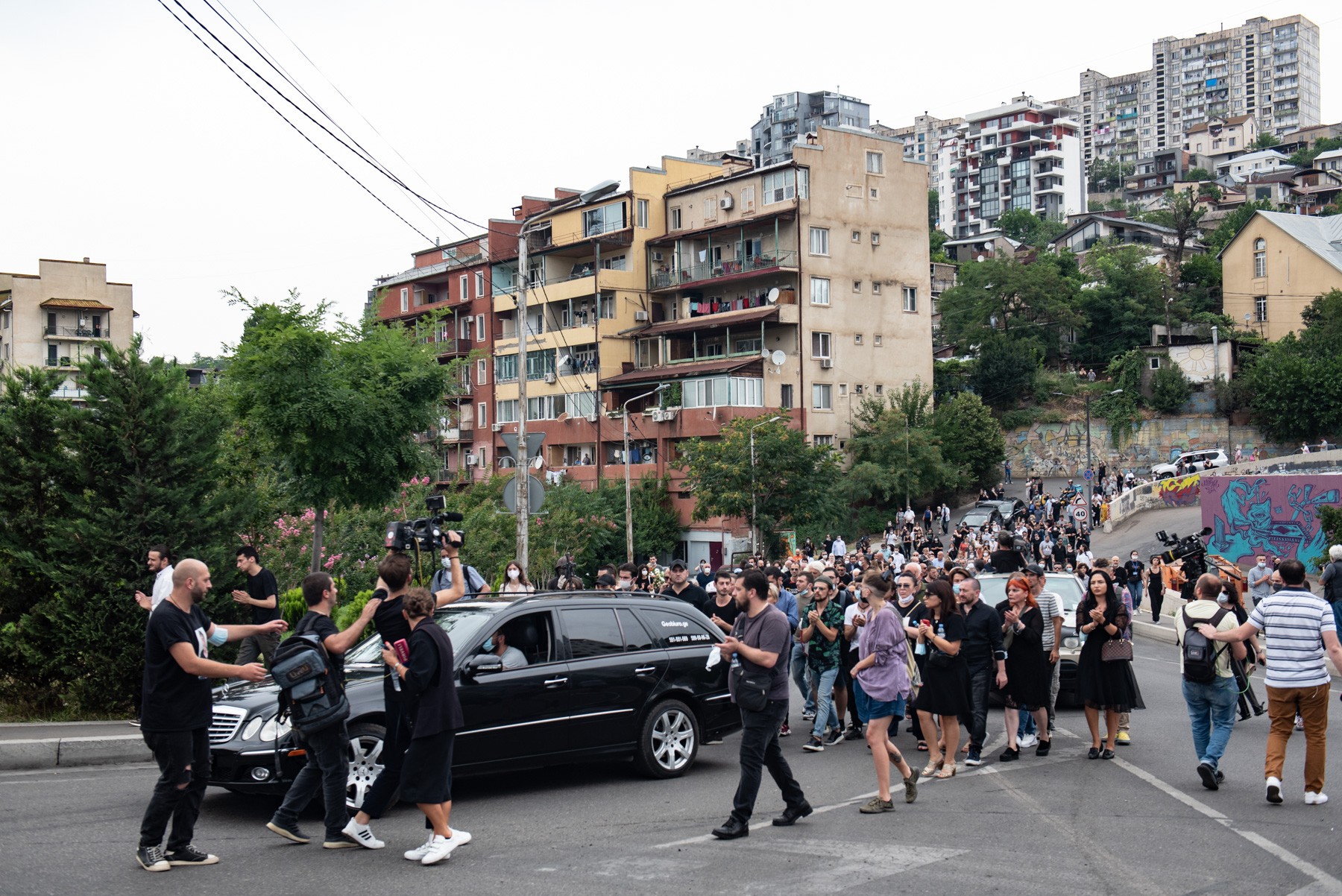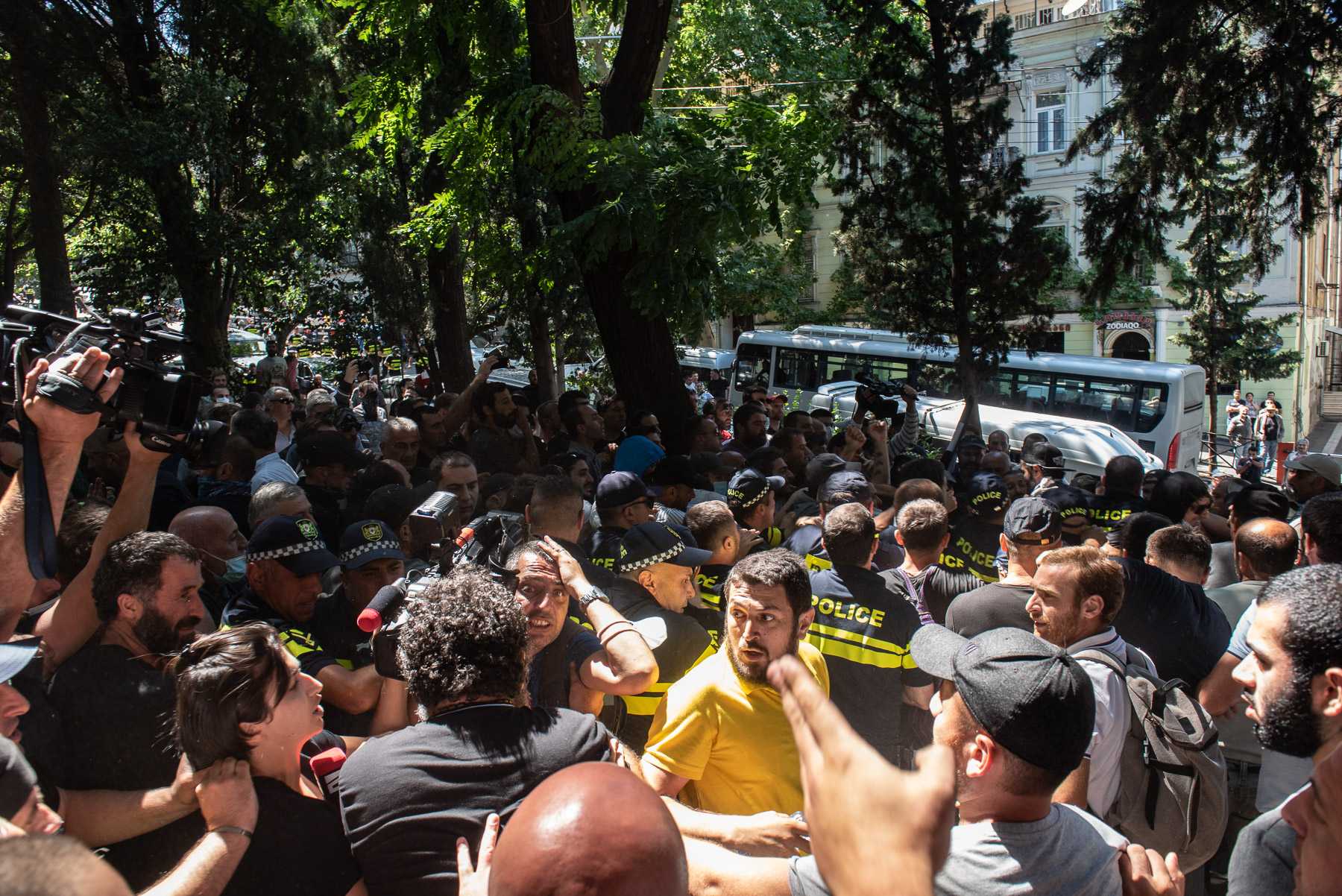Georgian journalist died of heroin overdose following 5 July attack, autopsy claims

Georgian news camera operator Aleksandre Lashkarava died of a heroin overdose less than a week after being attacked by a far-right mob, an official autopsy has concluded.
An extract of the autopsy results was provided to OC Media and other media outlets by the Interior Ministry on Friday. They claim that the TV Pirveli camera operator died of severe cardiovascular and respiratory failure caused by heroin intoxication.
The 4 of 37 pages of the report released to the press also state that several other drugs were found in Lashkarava’s body. While it stated that his body showed injuries he sustained while he was alive, it did not say if these contributed to his death.
The results came six months after Lashkarava’s passed away at home on 11 July. He had been recovering from multiple facial fractures and a concussion he sustained six days earlier during a homophobic riot on 5 July.
Despite the autopsy taking so long to complete, the authorities had begun claiming that Lashkarava’s death was the result of drug abuse soon after he died. On 12 July the director of the Interior Ministry’s Central Criminal Police Department, Mamuka Chelidze, presented an ‘interim report’ and claimed to have obtained witness testimony that Lashkarava and a friend bought drugs and ‘consumed drugs in a forested area’.
According to the documents released on Friday, the autopsy was completed over a week before it was released, on 30 December.
However, according to the lawyer representing Lashkarava’s family, Beka Takalandze, the family was not informed of its completion. Takalandze told OC Media that he and the family had found out about the results from media reports and that no one from either the interior ministry or National Forensic Bureau had contacted him or the family.
After his death, Lashkarava’s family had insisted that an independent medical examiner, Aleksandre Gejadze, take part in the autopsy process.
Gejadze told OC Media that he would hold a press conference on Saturday and would not answer questions before then.
However, part of the autopsy report released by the Ministry of Internal Affairs contained Gejadze’s signature.
A ‘chilling message’ to journalists
Following the violence on 5 July and Lashkarava’s subsequent death, the Georgian Government has faced a barrage of criticism from local and international watchdogs as well as Western countries.
The Interior Ministry’s release of the extract of the autopsy came hours after UNESCO included Lashkarava in their observatory of killed journalists.
‘I call on the authorities to ensure the announced investigation into the death of Alexander Lashkarava is transparent and comprehensive’, Audrey Azoulay, Director General of UNESCO said on Friday.
‘Journalists must be able to carry out their work without fear of violence. These events risk sending a chilling message to others and cannot be allowed to go unpunished.’
The new Speaker of the Parliament, Shalva Papuashvili, dismissed Lashkarava’s inclusion on the UNESCO list. He said that UNESCO did not have an investigative structure and that the list is inaccurate in relation to the day of death.
Initially, the date of Lashkarava’s death was indicated on the UNESCO website as 5 July, the day he was attacked. This was quickly corrected to 11 July.
[Read on OC Media: Journalists recall day of terror in Tbilisi]







